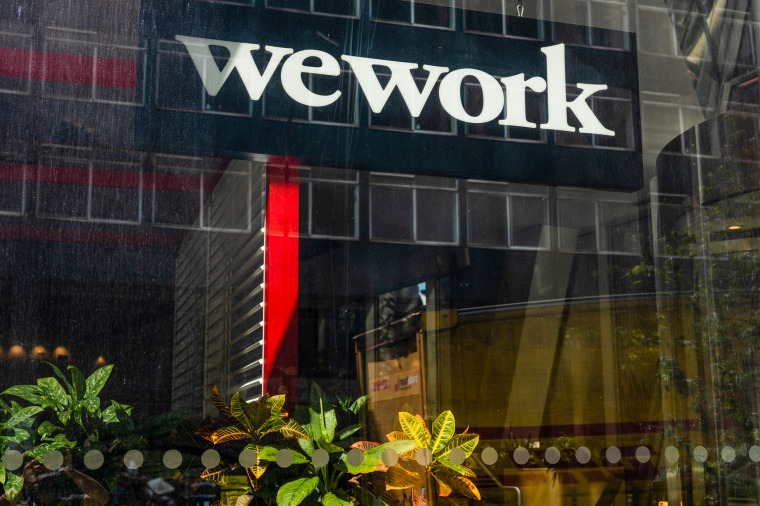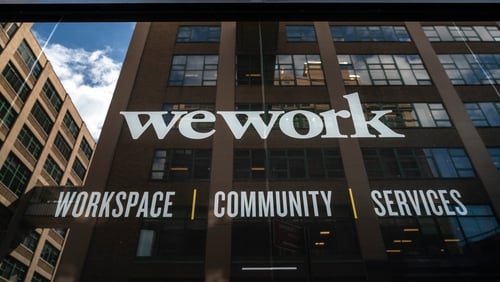WeWork Faces Dire Financial Challenges Amid Bankruptcy Warning

WeWork Faces Dire Financial Challenges Amid Bankruptcy Warning
In a stunning turn of events, WeWork, the once-promising unicorn in the coworking space, has issued a grim warning that bankruptcy could be on the horizon. The company’s financial struggles, exacerbated by the global pandemic and internal mismanagement, have placed it in a precarious position. WeWork’s inability to navigate these challenges might spell an unfortunate end to its ambitious journey.
Inception of a Vision
WeWork, founded in 2010 with a vision to revolutionize the workspace experience, initially gained widespread attention for its innovative concept. Providing shared office spaces equipped with modern amenities, WeWork soon attracted a significant number of freelancers, startups, and even established corporations looking for flexible office solutions. The allure of a collaborative environment, accompanied by various networking opportunities, led to rapid expansion and a staggering valuation.
)
Soaring Heights and Subsequent Stumbles
The company’s valuation soared to astronomical levels, earning it the coveted title of a unicorn in the business world. However, this meteoric rise was soon met with skepticism as questions arose about its financial sustainability. WeWork’s aggressive expansion strategy and exorbitant spending on acquisitions and leases raised eyebrows, particularly as the company reported mounting losses year after year.
Pandemic Paralysis
The COVID-19 pandemic acted as a crippling blow to WeWork’s already fragile financial foundation. As lockdowns swept across the globe, the demand for shared workspaces dwindled significantly. The shift towards remote work, coupled with growing health concerns, led to vacant desks and a steep drop in membership numbers. This translated into an unprecedented revenue slump, pushing WeWork deeper into the red.

Management Woes and Leadership Shakeups
Amidst these challenges, the company’s leadership faced internal turmoil. Co-founder Adam Neumann’s controversial management style and questionable financial decisions led to his eventual ousting in 2019. Despite attempts to stabilize the ship under new leadership, the damage had been done. WeWork’s credibility had taken a hit, and its reputation suffered a blow that made it increasingly difficult to attract new investors or secure fresh funding.
Bankruptcy Looms Large
With the recent warning of potential bankruptcy, WeWork finds itself at a crossroads. The company’s financial disclosures reveal a dire picture, with dwindling cash reserves and mounting debts. The real estate leases that once fueled its expansion have turned into a burden, as empty workspaces translate to missed rental payments. The road to recovery seems steep, and without a significant infusion of funds, bankruptcy could become an unavoidable reality.
Implications for Coworking Industry:
WeWork’s potential downfall sends ripples through the coworking industry it helped popularize. While some competitors managed to pivot and adapt during the pandemic, the looming bankruptcy of such a prominent player casts a shadow of uncertainty. Questions about the long-term viability of the coworking model in a post-pandemic world gain prominence, as businesses reconsider their office space needs and remote work arrangements.
The Way Forward
As WeWork stares down the barrel of bankruptcy, its leadership and stakeholders are left with a complex decision. The company must explore avenues to restructure its debt, renegotiate leases, and possibly sell off assets to stay afloat. Alongside these financial maneuvers, a substantial rebranding and renewed commitment to transparency are essential to regain trust from potential investors and clients alike.
The cautionary tale of WeWork serves as a stark reminder of the dangers of unchecked ambition and unsustainable growth. The once-celebrated startup’s potential bankruptcy underscores the importance of sound financial management, adaptable business strategies, and prudent decision-making. As WeWork navigates its most challenging chapter yet, the business world watches closely, witnessing the potential fall of a titan that soared too close to the sun.

Reshaping the Workspace Landscape
WeWork’s rise and potential fall have left an indelible mark on how society perceives and utilizes workspaces. Its innovative approach to office environments challenged the conventional norms, encouraging a shift towards flexible arrangements that catered to the evolving needs of modern professionals. However, as the company faces its darkest hour, the legacy it leaves behind will be one of caution and introspection.
Lessons in Leadership and Accountability
The downfall of WeWork offers a lesson in leadership and accountability that extends far beyond the realm of coworking. The narrative of unchecked hubris and the consequences of a charismatic but misguided leader are universal cautionary tales. As the business world witnesses the possible unraveling of a once-heralded startup, it’s a reminder that no company is immune to the effects of poor decisions and lack of financial prudence.
A Bumpy Road to Recovery
Should WeWork manage to avoid bankruptcy, the road to recovery will be far from smooth. The company’s reputation has been bruised, and rebuilding trust with investors, clients, and employees will be an uphill battle. The challenge lies not only in securing immediate financial stability but also in reimagining its value proposition to align with the evolving demands of a post-pandemic professional landscape.
Silver Linings and Future Prospects
Despite its current predicament, WeWork’s story is not devoid of silver linings. The company’s journey highlights the need for resilience and adaptability in an ever-changing business environment. It also underscores the importance of humility and transparency in leadership. While the headlines are currently dominated by uncertainty, WeWork’s experience could potentially pave the way for a renewed commitment to responsible growth in the startup ecosystem.
In conclusion, WeWork’s potential bankruptcy is a stark reminder of the fine line that startups tread between innovation and overextension. The cautionary tale serves as a reminder that even the most revolutionary ideas must be grounded in sound financial practices and realistic growth strategies. As WeWork grapples with its fate, its story serves as a mirror in which businesses across industries can reflect upon their own trajectories, ensuring a more sustainable and successful path forward.




